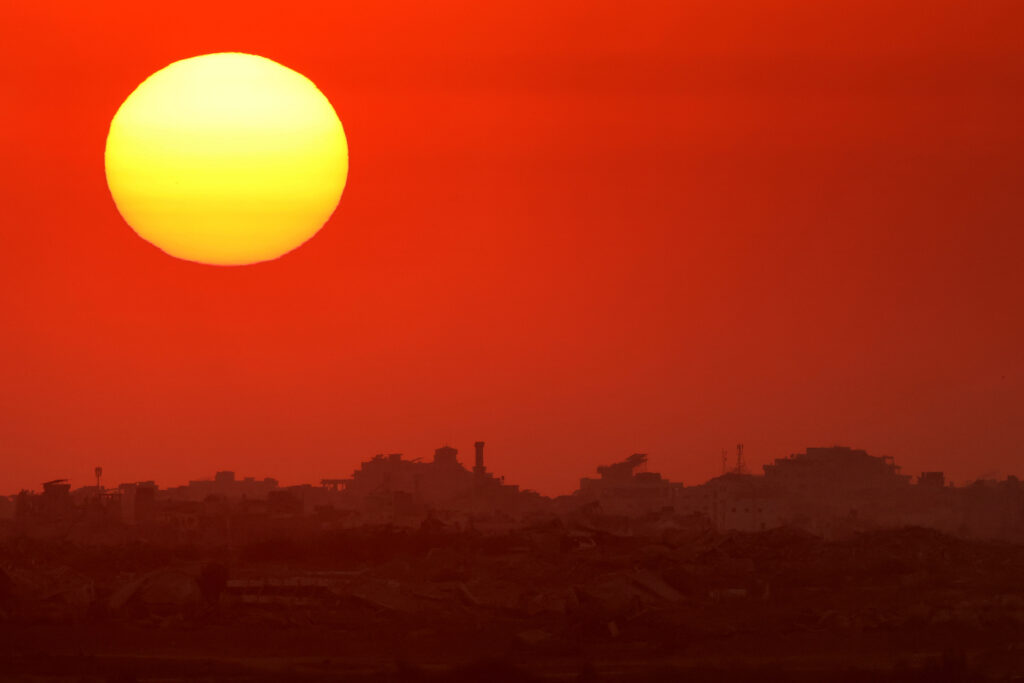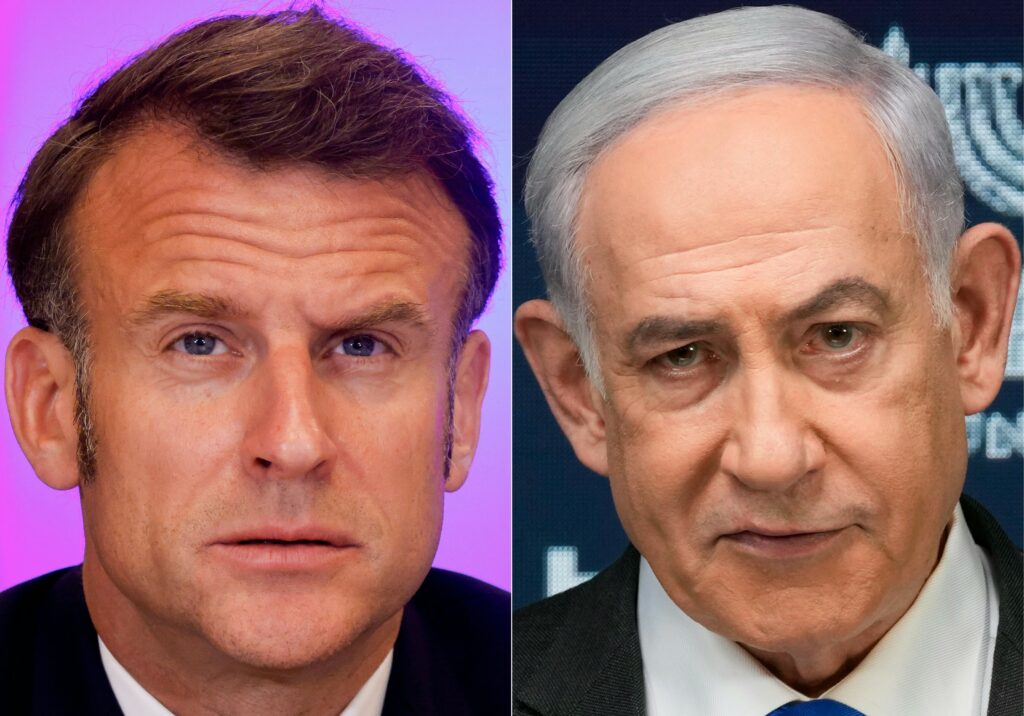AFP Asia Business
Israel demands release of all hostages after Hamas backs new truce offer
A senior Israeli official on Tuesday said the government stood firm on its call for the release of all hostages in any future Gaza ceasefire deal, after Hamas accepted a new truce proposal.Mediators are awaiting an official Israeli response to the plan, a day after Hamas signalled its readiness for a fresh round of talks aimed at ending nearly two years of war.Mediator Qatar expressed guarded optimism, noting the latest proposal was “almost identical” to an earlier version agreed to by Israel.Speaking on condition of anonymity, a senior Israeli official told AFP the government’s stance had not changed and demanded the release of all hostages in any deal.The two foes have held on-and-off indirect negotiations throughout the war, resulting in two short truces during which Israeli hostages were released in exchange for Palestinian prisoners, but they have ultimately failed to broker a lasting ceasefire. Qatar and Egypt, backed by the United States, have mediated the frequent rounds of shuttle diplomacy.Egypt said Monday that it and Qatar had sent the new proposal to Israel, adding “the ball is now in its court”. Qatari foreign ministry spokesman Majed al-Ansari said on Tuesday that Hamas had given a “very positive response, and it truly was almost identical to what the Israeli side had previously agreed to”.”We cannot make any claims that a breakthrough has been made. But we do believe it is a positive point,” he added.- Mounting pressure -According to a report in Egyptian state-linked outlet Al-Qahera News, the latest deal proposes an initial 60-day truce, a partial hostage release, the freeing of some Palestinian prisoners and provisions allowing for the entry of aid.Israeli Prime Minister Benjamin Netanyahu has yet to publicly comment on the plan, but said last week that his country would accept “an agreement in which all the hostages are released at once and according to our conditions for ending the war”.Senior Hamas official Mahmoud Mardawi said on social media that his group had “opened the door wide to the possibility of reaching an agreement, but the question remains whether Netanyahu will once again close it, as he has done in the past”. Hamas’s acceptance of the proposal came as Netanyahu faces increasing pressure at home and abroad.On Sunday, tens of thousands took to the streets in the Israeli city of Tel Aviv to call for an end to the war and a deal to free the hostages still held captive.Of the 251 hostages taken during Hamas’s October 2023 attack that triggered the war, 49 are still in Gaza, including 27 the Israeli military says are dead.The new proposal also comes after Israel’s security cabinet approved plans to conquer Gaza City, despite fears it will worsen the already catastrophic humanitarian crisis.On Tuesday, the new offensive was presented to the defence minister by the military’s top brass.Israel’s far-right National Security Minister Itamar Ben Gvir — who has staunchly opposed ending the war — slammed the plan, warning of a “tragedy” if Netanyahu “gives in to Hamas”.Senior Hamas official Bassem Naim said: “Unfortunately, today’s Zionist reactions reflect Netanyahu’s malicious intentions to continue the war, genocide and ethnic cleansing.”- ‘Unbearable’ -In Gaza, the civil defence agency reported Israeli strikes and fire killed 48 people across the territory on Tuesday.Agency spokesman Mahmud Bassal told AFP the situation was “very dangerous and unbearable” in the Zeitoun and Sabra neighbourhoods of Gaza City, where he said “artillery shelling continues intermittently”.The Israeli military declined to comment on specific troop movements, saying only that it was “operating to dismantle Hamas military capabilities” and took “feasible precautions to mitigate civilian harm”.The military later said a strike in Khan Yunis overnight targeted a Hamas militant.Media restrictions in Gaza and difficulties accessing swaths of the Palestinian territory mean AFP is unable to independently verify the tolls and details provided by the civil defence agency or the Israeli military.In the Zikim area of northern Gaza on Tuesday, an AFP journalist saw Palestinians hauling sacks of food aid along dusty roads lined with rubble and damaged buildings.Gazan Shawg Al-Badri said it took “three to four hours” to carry flour, what she called “white gold”, back to her family’s tent.”This bag is worth the whole world,” she said.Hamas’s October 2023 attack on Israel resulted in the deaths of 1,219 people, mostly civilians, according to an AFP tally based on official figures.Israel’s offensive has killed at least 62,064 Palestinians, most of them civilians, according to figures from the health ministry in Hamas-run Gaza, which the United Nations considers reliable.
Israel-France row flares over Macron’s move to recognise Palestinian state
A row between Israel and France over Paris’s plan to recognise a Palestinian state next month escalated to crisis level on Tuesday when Prime Minister Benjamin Netanyahu accused President Emmanuel Macron of fomenting “antisemitism”.The Elysee hit back, calling Netanyahu’s allegation “abject” and “erroneous”.”This is a time for seriousness and responsibility, not for conflation and manipulation,” the French presidency added.Netanyahu’s accusation was sent in a letter addressed to Macron, seen by AFP, which said that antisemitism had “surged” in France following the French president’s announcement last month that he will recognise Palestinian statehood.Macron said France would formally recognise a Palestinian state during a UN meeting in September — a move that at the time drew a swift rebuke from Israel.In his letter, Netanyahu said to Macron: “Your call for a Palestinian state pours fuel on this antisemitic fire. It is not diplomacy, it is appeasement. It rewards Hamas terror, hardens Hamas’s refusal to free the hostages, emboldens those who menace French Jews and encourages the Jew-hatred now stalking your streets.”By announcing the move to recognise statehood for Palestinians, France is set to join a list of nations that has grown since the start of the Gaza war nearly two years ago.France is among at least 145 of the 193 UN members that now recognise or plan to recognise a Palestinian state, according to an AFP tally.France has long advocated for the so-called “two-state solution”.It has said its move to recognise a Palestinian state goes against Hamas, which rules Gaza and has excluded a two-state solution.In the West Bank, the Palestinian Authority’s foreign ministry condemned Netanyahu’s remarks, calling them “unjustified and hostile to peace”.”The old record of confusing criticism of the Israeli occupation and its crimes or support for the Palestinian people’s rights to freedom and independence with antisemitism… has become cracked and exposed, and no one is fooled,” the ministry said.- Anti-Jewish violence ‘intolerable’ -In its response to Netanyahu’s antisemitism allegation, the French presidency said that France “protects and will always protect its Jewish citizens”.”Violence against the (French) Jewish community is intolerable,” it added.”That is why, beyond criminal convictions, the president has systematically required all his governments since 2017 — and even more so since the terrorist attacks of October 7, 2023 — to show the strongest action against perpetrators of antisemitic acts,” it said.Macron’s office added that the allegation in Netanyahu’s letter “will not go unanswered”.Macron’s minister for Europe, Benjamin Haddad, separately said that France has “no lessons to learn in the fight against antisemitism”.The issue “which is poisoning our European societies” must not be “exploited”, Haddad added.France is home to Europe’s biggest Jewish community.Reported antisemitic acts in France surged from 436 in 2022 to 1,676 in 2023, before dipping to 1,570 last year, according to the interior ministry.Netanyahu on Tuesday also criticised Australia, which has similarly said it plans to recognise Palestinian statehood next month.The Israeli leader, on his office’s official X account, called his Australian counterpart, Anthony Albanese, a “weak politician who betrayed Israel and abandoned Australia’s Jews”.The personal attack came amid a diplomatic spat between the two countries after the Australian government on Monday cancelled the visa of far-right Israeli politician Simcha Rothman.Hours later, Israel’s Foreign Minister Gideon Saar said he had revoked the visas of Australia’s representatives to the Palestinian Authority.


